Using Arbitration To Resolve Shareholder Disputes
Using Arbitration To Resolve Shareholder Disputes
Using Arbitration To Resolve Shareholder Disputes
Using Arbitration To Resolve Shareholder Disputes
Whether your company has two shareholders or two thousand, it is almost inevitable that there will be disagreements at some point along your business journey, given differences in personalities and the everyday stresses and complexities of the commercial environment. It is therefore astounding that very few organisations have detailed processes and procedures on what to do when (not if) a dispute develops. Although a well-drafted Shareholders’ Agreement will state that parties should initially embark on mediation in the event of a shareholder dispute, we often find that there are no further directions concerning what to do if mediation fails. Neglecting to put in place a Plan B is akin to relying on British Rail to get to an important, sale-closing meeting – all’s well if things go to plan and run smoothly, but chances are it won’t and you will be left frantically looking for an alternative solution to avoid disaster.
If mediation proves unsuccessful, arbitration is a credible alternative to litigation. Less formal, cheaper, confidential, and providing an opportunity to select an Arbitrator who has expertise in your market sector, arbitration is an alternative dispute resolution (ADR) method well worth considering when faced with a shareholders dispute.
What is arbitration?
Arbitration is a form of ADR in which parties involved in a legal dispute agree to submit their case to a neutral third party, known as an Arbitrator or a panel of Arbitrators. Arbitration is commonly used in a variety of contexts, especially in commercial and company disputes with an international element. This is because an arbitration award can be enforced in domestic courts thanks to several international conventions, including the Convention on the Recognition and Enforcement of Foreign Arbitral Awards 1958, known as the New York Convention (NYC), the Geneva Convention on the Execution of Foreign Arbitral Awards 1927, and the 1965 Convention on the Settlement of Investment Disputes (ICSID) Additional Facility Rules.
What is the arbitration process?
To initiate arbitration there must be an Arbitration Agreement in place. Terms in the Arbitration Agreement can be used to select the jurisdiction for the arbitration proceedings, establish procedural rules, and designate the desired qualifications of the Arbitrator/s.
An Arbitration Agreement is either integrated into or appended to the primary commercial contract, in the case of shareholder disputes, the Shareholders’ Agreement.
Arbitration awards are generally final and binding unless otherwise agreed by the parties in the Arbitration Agreement.
In England and Wales, the Arbitration Act 1996 governs arbitration procedures. Consequently, if the intention is to enforce an award within England and Wales, careful consideration of the Arbitration Act 1996 is essential when drafting the Arbitration Agreement.
How can arbitration help resolve shareholder disputes?
Shareholder disputes can arise from a variety of issues, including disagreements over corporate governance, breach of fiduciary duties, payment of dividends, or share valuations.
Arbitration can be particularly beneficial in shareholder disputes because it offers a more expedient resolution compared to traditional litigation, which can be time-consuming and costly. The chosen Arbitrators can efficiently navigate complex financial and legal issues, ensuring a quicker decision. Also, the private nature of arbitration allows for confidentiality, preserving sensitive corporate information from public scrutiny.
The expertise of Arbitrators in financial and corporate matters is another advantage. They can offer specialised knowledge, providing a commercially realistic resolution to shareholder disputes.
How can I enforce an arbitration award concerning a shareholder dispute in England and Wales?
Achieving an arbitration award in your favour and enforcing it are two different matters. Fortunately, the NYC provides a framework through which awards made in one country can be enforced in another, provided they are both signatories. Therefore, the first step in ensuring you can enforce any award is to pick a signature country when selecting a jurisdiction in which to have an arbitration hearing.
The Arbitration Act 1996 implements the NYC into English law. Therefore, the courts in England and Wales will recognise and enforce[1] arbitration awards made in another signatory country.
To have an arbitration award made outside the UK enforced, you must submit an Arbitration Claim Form to a court located in England and Wales. You must also include the following:
- The arbitration award or an authenticated copy, translated by an official, sworn translator or by a diplomatic or consular agent if required.
- The original Arbitration Agreement or a certified copy, translated by an official, sworn translator or by a diplomatic or consular agent if required.
An application to enforce an award is normally made without notifying the other party; therefore, you must disclose all the material facts relating to the Arbitration Agreement and award or risk having any court order made in your favour set aside.
On a side note, the Arbitration Bill, which is currently proceeding through Parliament, will include, amongst other changes, provisions stating that the law governing an Arbitration Agreement will be the law of the country chosen for arbitration unless parties expressly agree otherwise. This will ensure that, where arbitration is located in England and Wales or Northern Ireland, it will be fully backed by English arbitration law, which is extremely supportive of the arbitration process.
Wrapping up
Shareholder disputes allowed to get out of hand can result in the winding up of a company. Although this truly is the nuclear option, the fact it exists should be motivation enough to ensure your Shareholders’ Agreement contains an extensive dispute resolution clause as well as an attached Arbitration Agreement. In addition, it is crucial to draft the Arbitration Agreement in a manner which will ensure if arbitration proceedings take place in another jurisdiction, any award will be recognised and enforced in the UK.
To find out more about how our team can assist, please email us at [email protected] or phone 0121 249 2400.
The content of this article is for general information only. It is not, and should not be taken as, legal advice. If you require any further information in relation to this article, please contact 43Legal.
[1] The NYC and the Arbitration Act 1996 distinguish between recognition and enforcement. Recognition of an arbitration award made in a jurisdiction party to the New York Convention will be recognised as binding on the parties to the arbitration. That means it can be relied on by way of a defence, set-off or otherwise in any legal proceedings in England and Wales. Enforcement, on the other hand, means the Court may give permission for judgment to be entered in terms of the award. This makes the award enforceable in the same manner as an English court judgment.











